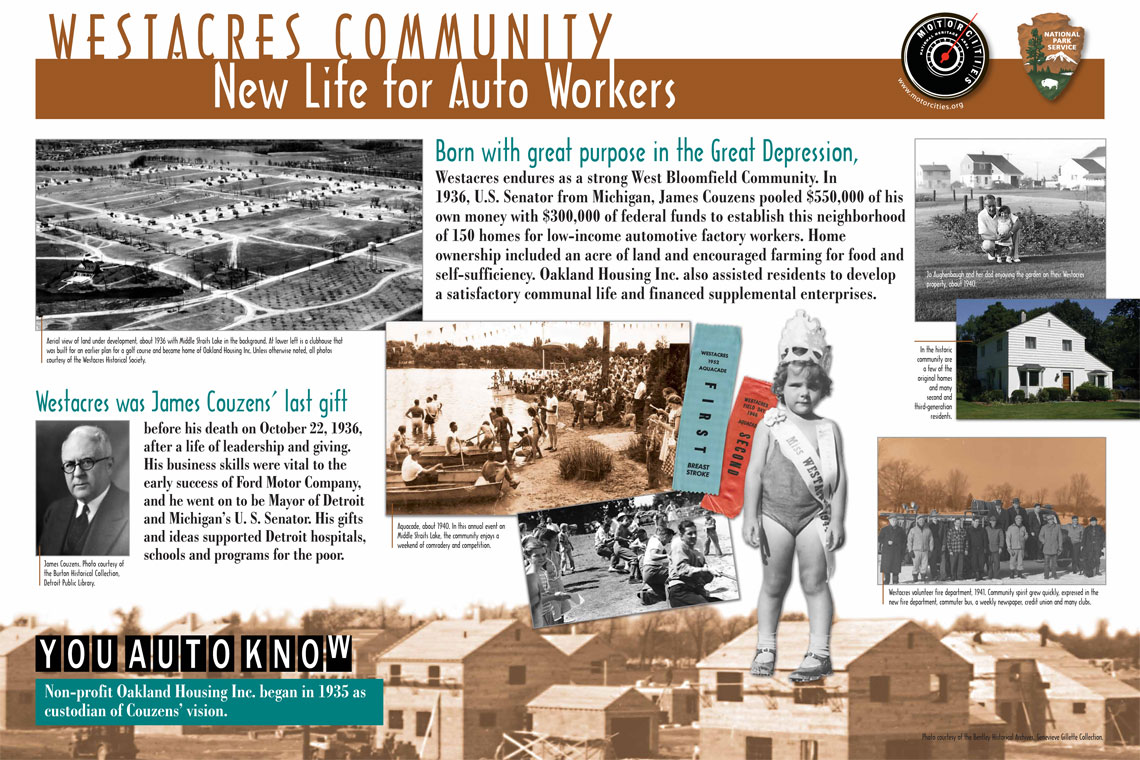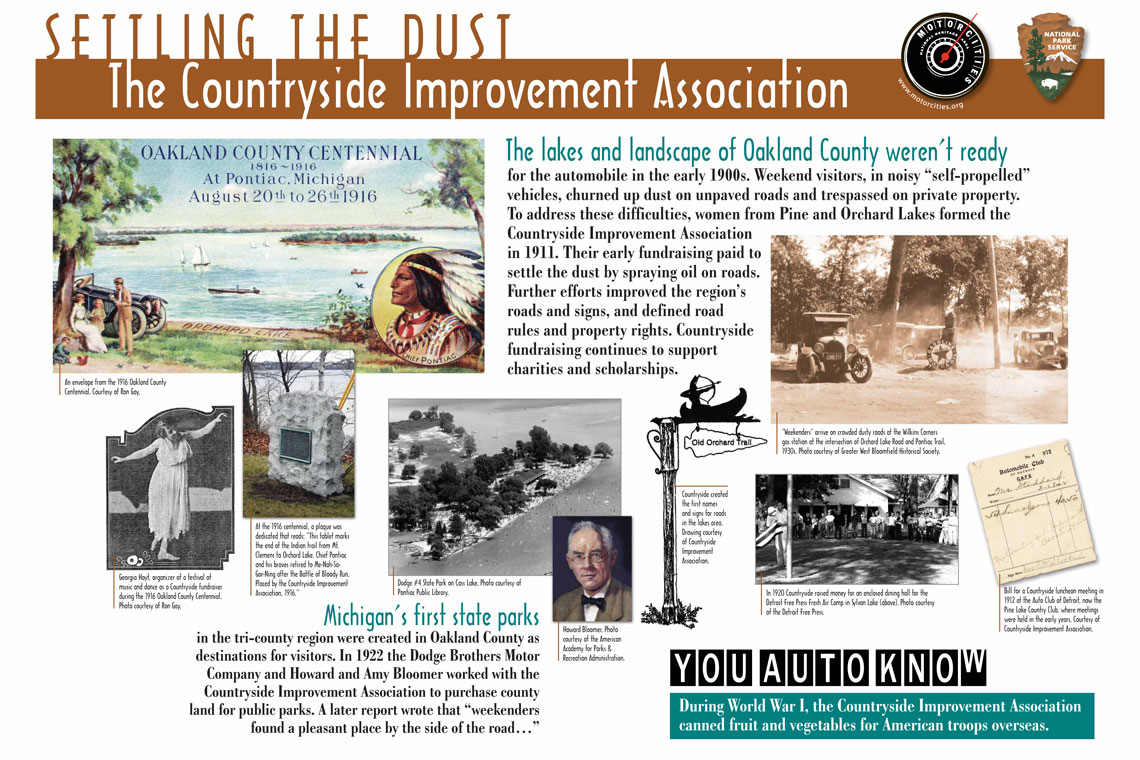Born with great purpose in the Great Depression, Westacres endures as a strong West Bloomfield Community. In 1936, U.S. Senator from Michigan, James Couzens pooled $550,000 of his own money with $300,000 of federal funds to establish this neighborhood of 150 homes for low-income automotive factory workers. Home ownership included an acre of land and encouraged farming for food and self-sufficiency. Oakland Housing Inc. also assisted residents to develop a satisfactory communal life and financed supplemental enterprises.
Wayside Sign – Westacres Community: New Life for Auto Workers

Object ID: 2013-070-009
Date: 2013
Collection: West BloomfieldSubjects: Wayside Sign
Wayside Sign – Settling the Dust: The Countryside Improvement Association

Object ID: 2013-070-003
Date: 2013
Collection: Transportation, West BloomfieldSubjects: Wayside Sign
The lakes and landscapes of Oakland County weren’t ready for the automobile in the early 1900s. Weekend visitors, in noisy “self-propelled” vehicles, churned up dust on unpaved roads and trespassed on private property. To address these difficulties, women from Pine and Orchard Lakes formed the Countryside Improvement Association in 1911. Their early fundraising paid to settle the dust by spraying oil on roads. Further efforts improved the region’s roads and signs, and defined road rules and property rights. Countryside fundraising continues to support charities and scholarships.
Camp Tinega – Leona Mason Heitsch
Object ID: 2013-030-006
Collection: West BloomfieldSubjects: Correspondence
“Regarding Camp Tinega, Protestant Children’s Home: My father was orchard manager of Walnut Glen Fruit Farms, which was on the corner of Middlebelt and Lone Pine, SW. The end of the “”new orchard”” on the west was bordered by The Protestant Children’s Home. The boys often climbed the fence to enjoy “”Egg Lake”” (now Bloomfield, I think). One child drowned there, one child left a partially carved out wooden boat, which I still have, we never saw the children, they came cautiously and of course without the knowledge of the staff at the camp. After school started a couple of the boys would hike to the corner of Middlebelt and Lone Pine and ride with Dad and me to Pine Lake School, time frame from 1939 to the early forties. One was Norman Krushka (spelling?). The two of them were very subdued young teens, one could feel their emotional state, even if one was younger than they were. Leona Mason Heitsch”